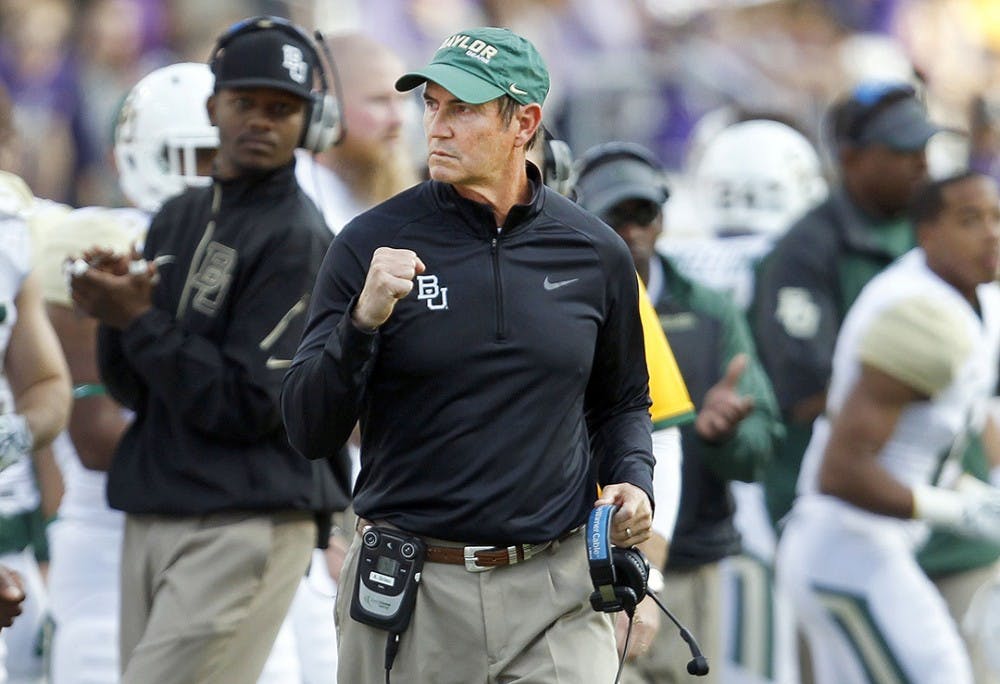One of the major draws of sports is that it changes from minute to minute. However, sports fans also love to focus on the past. We are constantly debating the greatest era or player of a sport and looking back on sports' best moments. In doing so, we fail to realize that many of the moments that we will look back on for years are happening right now. Over the course of 2016, there have already been at least three storylines that will likely meet the ultimate mark of a modern sports legend: becoming the subject of an ESPN 30 for 30.
1. Baylor's Scandal
What if I told you: The death penalty didn't kill scandal in Texas football.
The scandal itself would be enough for a strong 30 for 30: allegations of rape and assault that range from players to staff, Art Briles initial resistance to admitting guilt and a Baylor board member who wants the coach to return.
What makes this an especially impactful story, however, is how much the scandal contrasts with the narrative initially presented of Briles and his Baylor Bears. Not only did Art Briles bring a football program from the laughingstock of the state to a national powerhouse, but for many people he embodied a classic heartwarming Texas story in a plot that could have been a spinoff of Friday Night Lights. Briles grew up in small-town Texas, where he played on his father's team. Over the course of his coaching and playing career, he never left Texas. His son, Kendal Briles, not only played for him but also coached for him at Baylor.
2. Race and Sports in 2016
What if I told you: It's not just sports.
The social unrest of the United States became inextricably intertwined with athletics over the course of 2016. The Black Lives Matter movement affected sports: fans were unable to attend the Orioles' game against the White Sox as a result of protests in Baltimore. Sports, however, also affected the Black Lives Matter Movement when Colin Kaepernick, Lebron James and countless other athletes expressed their opinion on race relations in America, leading to national discussion about an athlete's role in these situations, racism in athletics and racism in the nation as a whole. It also seems worthy to note that this occurred the same year as Muhammad Ali, an athlete known for his social activism, passed away.
3. The Russian Doping Scandal in Rio
What if I told you: For swimmers, the Cold War began in Rio.
Swimming in the the 2016 Olympics became enveloped in drama before competitions even began. The International Olympic Committee refused to apply a widespread ban on Russian swimmers after the World Anti-Doping Agency released a report saying that Russian athletes had both widely and systematically cheated in recent Olympics. However, the real conflict truly took off when American swimmer Lilly King criticized world champion Yulia Efimova for competing and bragging despite her history of testing positive for performance enhancing drugs. King then defeated Efimova on her way to winning gold in the 100m breaststroke.
The controversy surrounding the International Olympic Committee's decision and King's comments set fire to issues that will likely continue to affect the sport for years to come. The degree to which many fans and athletes trust not only the International Olympic Committee, but also the quality of the sport have the potential to change, due to the increased media attention to the use of performance enhancing drugs in swimming. King's comments also sparked debate over whether swimming should remain a gentleman's sport or whether the convention of swimmers staying silent about conflict and issues within the sport should be broken.

